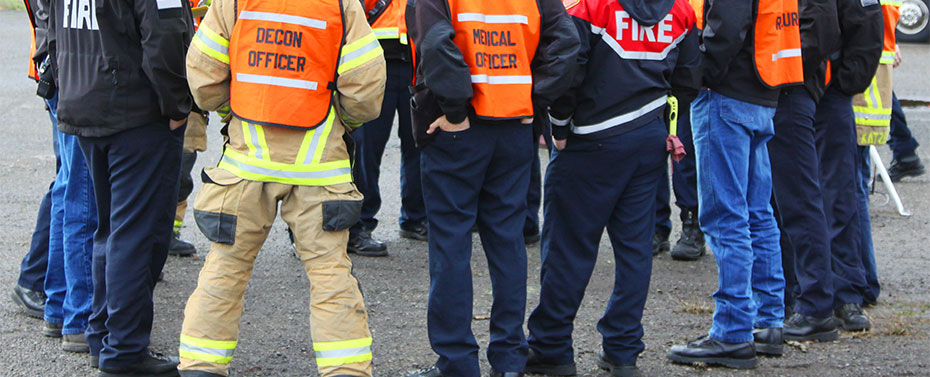EMS Training Courses for Professionals

For schedule, fees, and more information, visit our online class registration system.
Questions? Contact the EMS Training Center, 201-894-3875.
Advanced Cardiac Life Support (ACLS)
The Advanced Cardiac Life Support Provider Initial Course is designed to provide the knowledge and skills needed to evaluate and manage the first 10 minutes of an adult cardiac arrest. Students will learn how to manage 10 of the most common ACLS cases: respiratory emergencies; four types of cardiac arrest (simple ventricular fibrillation/ventricular tachycardia, complex VF/VT, pulseless electrical activity and asystole); four types of pre-arrest emergencies (bradycardia, stable tachycardia, unstable tachycardia, and acute coronary syndromes); and stroke.
The Advanced Cardiac Life Support Renewal Course is designed to review and refresh the knowledge and skills learned in the initial ACLS course. It provides reinforcement of the knowledge and skills to recognize and treat cardiac arrest in adults.
AHA ECG and Pharmacology Course
This course is for healthcare professionals who participate in the management of cardiopulmonary arrest or other cardiovascular emergencies. This includes personnel in emergency response, emergency medicine, intensive care and critical care units such as physicians, nurses, paramedics, and others who require this specialized knowledge for their job.
Pediatric Advanced Life Support (PALS)
The Pediatric Advanced Life Support Initial Course is designed to instruct the learner with the information needed to recognize infants and children at risk for cardiopulmonary arrest, the information and strategies needed to prevent cardiopulmonary arrest in infants and children and the skills needed to resuscitate and stabilize infants and children in respiratory failure, shock, or cardiopulmonary arrest. This course is designed primary for healthcare professionals (i.e., hospital, nursing home or ambulance personnel) who are responsible for and are in frequent contact with infants and children. Applicants must be able to attend both sessions scheduled.
The Pediatric Advanced Life Support Renewal Course is designed to review and refresh the knowledge and skills learned in the initial PALS Course. It provides reinforcement of the knowledge and skills to recognize and treat cardiac arrest in infants and children.
Healthcare Provider BLS Course
The Healthcare Provider BLS Course is designed primarily for healthcare professionals (i.e., hospital, nursing home, or ambulance personnel). The course teaches the skills of CPR for patients of all ages (adults, children, and infants) and includes ventilation with a barrier device, a bag-mask device and oxygen, use of an automated external defibrillator (AED), and relief of foreign-body airway obstruction (FBAO).
Pediatric Emergency Assessment Recognition and Stabilization Course (PEARS)
PEARS helps healthcare providers develop the knowledge and skills needed for emergency evaluation and treatment of seriously ill infants and children. PEARS teaches providers how to recognize respiratory distress, shock and cardiac arrest, and provide appropriate lifesaving interventions within the initial minutes of response until the child is transferred to an advanced life support provider. The goal of PEARS is to improve the quality of care provided to seriously ill or injured infants and children, resulting in improved outcomes.
Prehospital Trauma Life Support (PHTLS)
PHTLS is recognized around the world as the leading continuing education program for prehospital emergency trauma care. The mission of PHTLS is to promote excellence in trauma patient management by all providers involved in the delivery of prehospital care. PHTLS is developed by NAEMT in cooperation with the American College of Surgeons’ Committee on Trauma. The Committee provides the medical direction and content oversight for the PHTLS program.
PHTLS courses improve the quality of trauma care and decrease mortality. The program is based on a philosophy stressing the treatment of the multi-system trauma patient as a unique entity with specific needs. PHTLS promotes critical thinking as the foundation for providing quality care. It is based on the belief that, given a good fund of knowledge and key principles, EMS practitioners are capable of making reasoned decisions regarding patient care. The course utilizes the internationally recognized PHTLS textbook and covers the following topics: physiology of life and death; scene assessment; patient assessment; airway; breathing, ventilation, and oxygenation; circulation, hemorrhage, and shock; patients with disabilities; and patient simulations.
